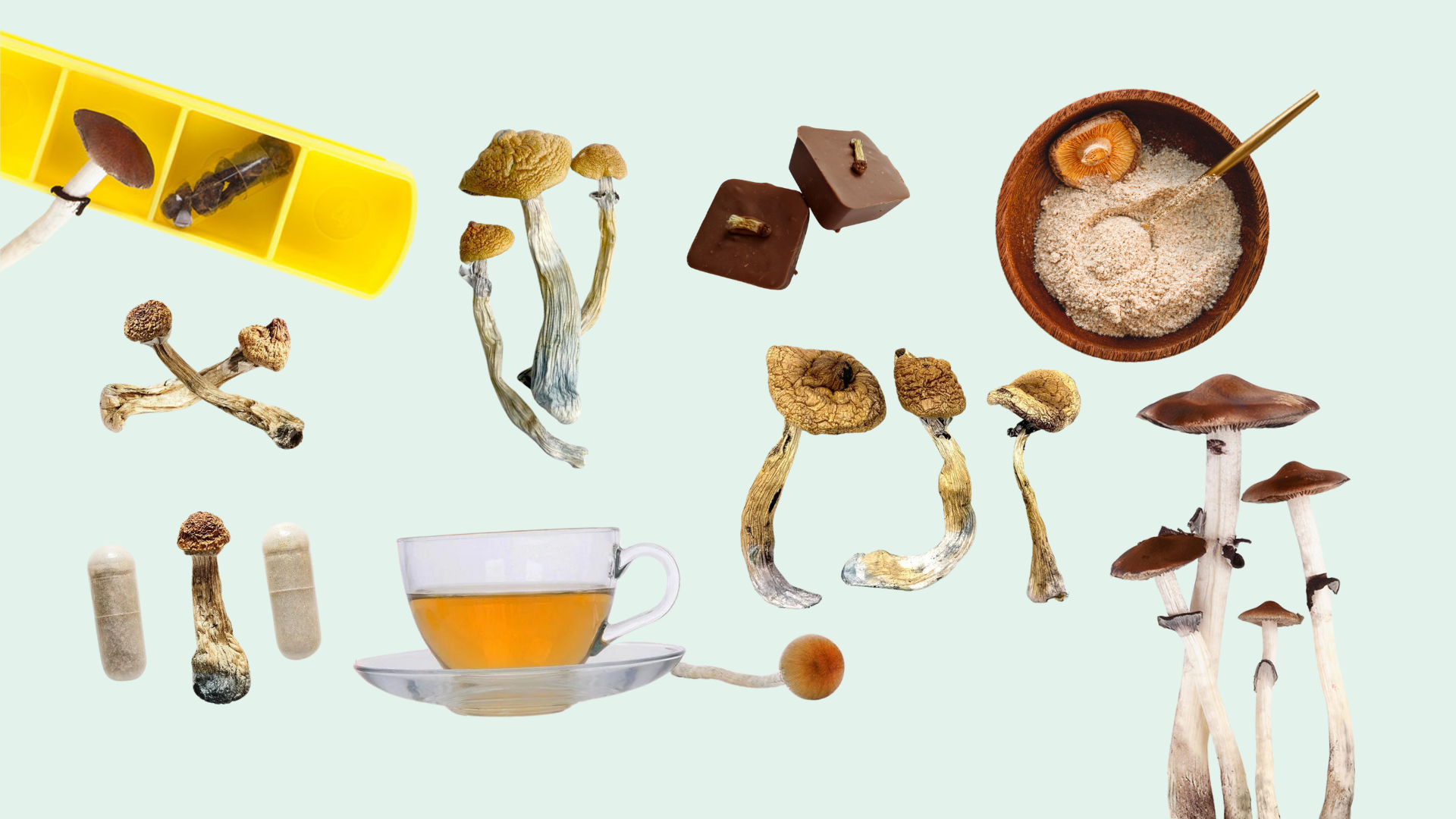Understanding the Chemistry and Effects of Psilocybin
Psilocybin is a naturally occurring hallucinogenic compound found in several species of mushrooms, commonly referred to as “magic mushrooms” or “shrooms.” When ingested, psilocybin interacts with the brain’s serotonin receptors, leading to a range of psychoactive effects, including altered perceptions, hallucinations, and changes in mood and cognition.
The potency and effects of psilocybin can vary widely depending on the specific mushroom species, the amount consumed, and the individual’s physiology and mental state. While some users may experience a “good trip” characterized by feelings of euphoria, spiritual enlightenment, and a sense of connection with the world, others may encounter a “bad trip” marked by anxiety, panic, and even psychosis.
What Is the Addictive Potential of Psilocybin?
Contrary to popular belief, psilocybin does have the potential to be psychologically addictive, even though it does not cause physical dependence or withdrawal symptoms like other substances, such as opioids or alcohol. The psychological addiction to psilocybin is rooted in the desire to repeatedly experience the altered states of consciousness and the perceived benefits associated with its use.
Addiction can manifest in a variety of ways, including:
- Increased tolerance, requiring higher doses to achieve the desired effects
- Difficulty controlling or limiting the use of psilocybin
- Neglecting important responsibilities or activities in favor of using the drug
- Continued use despite the recognition of its harmful effects
What Are the Long-Term Effects of Psilocybin Use?
While psilocybin is often perceived as a relatively “safe” drug, long-term use can have significant and potentially lasting consequences. Some of the potential long-term effects of psilocybin misuse include:
- Persistent psychosis: In rare cases, psilocybin use can trigger the onset or exacerbation of psychotic disorders, such as schizophrenia, leading to ongoing hallucinations, delusions, and disorganized thinking.
- Hallucinogen persisting perception disorder (HPPD): This condition, also known as “flashbacks,” involves the spontaneous and recurrent experience of visual disturbances and hallucinations long after the initial psilocybin use.
- Cognitive impairment: Chronic psilocybin use has been associated with deficits in memory, attention, and overall cognitive functioning.
- Increased risk of accidents: The altered perceptions and impaired judgment caused by psilocybin use can significantly increase the risk of accidents, falls, and other physical harm.
- Mental health complications: Prolonged psilocybin use has been linked to the worsening of underlying mental health conditions, such as anxiety, depression, and suicidal ideation.
It is crucial to understand that the long-term effects of psilocybin use can be unpredictable and vary greatly among individuals. Seeking professional help and avoiding recreational use is essential to mitigate the potential risks and safeguard one’s long-term well-being.
What Is Comprehensive Addiction Treatment for Psilocybin?
Addressing psilocybin addiction requires a comprehensive approach that addresses the psychological, emotional, and behavioral aspects of the disorder. The primary components of effective psilocybin addiction treatment include:
- Counseling and therapy:
- Individual therapy, such as cognitive behavioral therapy (CBT), can help individuals identify and address the underlying drivers of their psilocybin use.
- Group therapy and support groups can provide a sense of community, accountability, and shared experiences, which can be invaluable in recovery.
- Outpatient treatment programs:
- Intensive outpatient programs (IOPs) offer a structured yet flexible treatment approach that allows individuals to receive comprehensive care while maintaining their daily responsibilities.
- General outpatient programs provide ongoing support and monitoring, helping individuals transition back into their daily lives.
- Medication-assisted treatment (MAT):
- While there are no FDA-approved medications specifically for psilocybin addiction, medications used to treat co-occurring mental health conditions, such as anxiety or depression, may be incorporated into the treatment plan to support overall health and prevent relapse.
- Holistic approaches:
- Complementary therapies, such as mindfulness meditation, yoga, and art therapy, can help individuals develop healthier relationships with themselves.
A comprehensive assessment by a qualified addiction treatment professional is essential to develop an effective and personalized treatment plan.
The Importance of Aftercare and Ongoing Support
Recovering from psilocybin addiction is a lifelong journey, and the importance of aftercare and ongoing support cannot be overstated. Once the initial treatment phase has been completed, individuals in recovery must continue to prioritize their well-being and actively engage in the following:
- Relapse prevention:
- Developing strategies to identify and manage triggers, cravings, and high-risk situations that could lead to a relapse
- Regularly attending support group meetings, such as Narcotics Anonymous (NA) or SMART Recovery, to maintain a strong network of sober peers
- Continued therapy and counseling:
- Regularly meeting with a therapist or counselor to address ongoing mental health needs
- Lifestyle changes:
- Adopting healthy habits, such as regular exercise, a balanced diet, and engaging in meaningful activities
- Establishing a supportive social network and avoiding environments or situations that could trigger a return to psilocybin use
Successful long-term recovery from psilocybin addiction requires a sustained commitment to the recovery process and a willingness to adapt to the evolving challenges that may arise. By prioritizing aftercare and ongoing support, individuals in recovery can increase their chances of maintaining sobriety, improving their overall quality of life, and preventing the devastating consequences of relapse.

